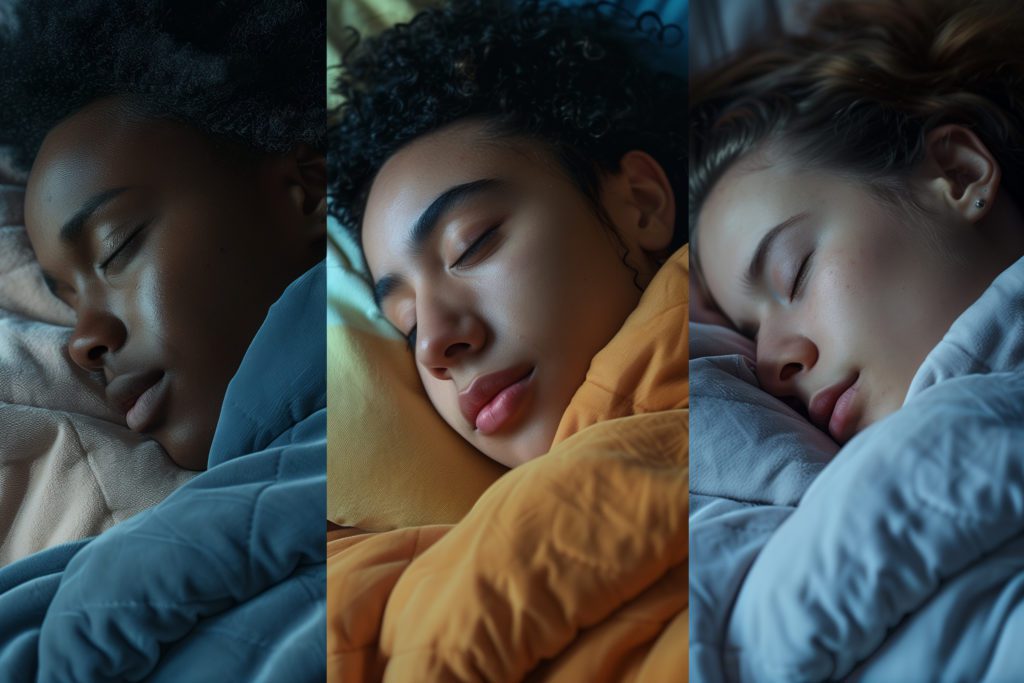
The Role of Genetics in Sleep Disorders
Genetics and sleep disorders often go hand-in-hand, especially as you age. Find out more about this link and what you can do about it.

Insomnia is a sleep disorder that makes it hard to fall and stay asleep. While some people experience temporary bouts of insomnia, others struggle with it for much longer. This condition can significantly impact your quality of life and affects women more often than men. Approximately 20 percent to 50 percent of the population experience insomnia at some point in their lives, with women more often affected than men.
Genetics may play a significant role in whether a person develops insomnia and other sleep disorders. The following are some ways genetics influence the development of sleep disorders, as well as other factors that impact the quality of your sleep.
How Genetics Play a Role in Insomnia
In addition to insomnia, genetics influence your sleep in several different ways, including the amount of shut-eye you need and your bedtime preference. However, just because you have a parent who struggles with insomnia doesn't mean you will too. While genetics may increase your risk, they can't cause insomnia on their own.
According to a 2019 research study, 57 genetic regions are associated with insomnia, including sleep quality, your optimal amount and when you're likely to fall asleep. In addition, these areas impact the regulation of your sleep-wake cycle and level of alertness. Several genetic processes also affect the hormones associated with your circadian rhythm.
Additionally, studies have found a link between insomnia and the occurrence of specific variants on chromosomes 7 and 9 in people of European descent. These variants are also located along pathways related to sleep regulation and circadian rhythm, further adding to the genetic link underlying several health conditions, including metabolic disease and sleep disorders.
Environmental Factors That Can Influence Your Genes
There are over 20,000 genes that make up the qualities that make you unique, including your looks, personality and other traits. Although you may carry a genetic predisposition for insomnia, this doesn't necessarily mean that you will develop it during your lifetime. Your genetic expression is considerably influenced by a variety of environmental factors, as well. You can control many aspects of your environment, which then influences genetic expression (whether your genes associated with insomnia become activated).
To further illustrate this point, some people are born with a genetic predisposition to developing diabetes. Those who have a family history of the disease should limit their sugar intake, maintain a healthy weight and do what they can to decrease their risk. Similarly, those with a family history of insomnia must take precautions to practice good sleep hygiene to avoid developing the sleep disorder.
Additional Causes of Insomnia
Although genetics play a pivotal role in the development of insomnia, other environmental factors can cause sleep deprivation and potentially lead to the development of sleep disorders:
- Stress - Stress keeps many people up at night. Some everyday stressors include work, personal relationships, finances and health problems. Those who receive less sleep every night also feel an increase in stress levels than those who get enough sleep.
- Poor sleep hygiene - Unhealthy sleep habits can disrupt the body's internal clock, making falling and staying asleep difficult.
- Mental health conditions - Several mental health disorders are linked with sleep problems, including anxiety, bipolar disorder, post-traumatic stress disorder (PTSD) and depression.
- Light exposure - Excessive light exposure (especially blue light) in the evening can disrupt your body's circadian rhythm and suppress melatonin production.
- Temporary or incidental factors - Shift workers and jet lag can also disrupt sleep, making it difficult to get enough rest.
Fortunately, most of these factors are controllable with healthy lifestyle changes.
Are There Other Sleep Disorders With a Genetic Component?
Like insomnia, other sleep disorders can have a genetic component. Experts believe that there is a genetic component to narcolepsy, a sleep disorder characterized by excessive daytime sleepiness.
Restless Legs Syndrome (RLS)
Restless leg syndrome is characterized by an uncontrollable urge to move your legs around when sleeping, often occurring at night. A significant percentage of people diagnosed with this sleep disorder also have a family history of it, and earlier onset is often due to genetics.
Obstructive Sleep Apnea (OSA)
Obstructive sleep apnea causes lapses in breathing due to a physical obstruction in the airway. People have a higher risk of developing obstructive sleep apnea when they also have a relative diagnosed with this disorder. Some studies suggest that certain genetic factors, including changes in genetic receptors, vitamin D deficiency and genetic alterations in white blood cells play a role in the genetic inheritance of sleep apnea. Genetics can also predispose a person to developing this condition in other ways, including:
- Body fat and distribution - People with more significant fat deposits on their face and neck may be at a higher risk of this condition.
- Facial anatomy - Genes play an important role in the shape of your facial features, impacting the width of your airway and whether it can become easily blocked.
- Breathing control - Although research is still unclear, some experts speculate that genetics can influence muscles and neural signals associated with breathing, impacting one's chances of developing sleep apnea.
- Sleep and circadian rhythm issues - Genes influence sleep schedules, quality of sleep and additional sleep disorders. Experts call for future studies to examine the role of genetics, sleep patterns and the development of OSA.
While some conditions associated with poor sleep can be hereditary, other inherited genetic traits can also put you at greater risk. If you're experiencing signs of a sleep disorder, it's critical to know your family history so your doctor can effectively diagnose you and outline an appropriate course of treatment.
While genetics and sleep disorders are often related, this doesn't mean that you're destined for a lifetime of chronic sleep deprivation if you have a family history of insomnia. By getting more information about your family's medical history, practicing better sleep hygiene and understanding how lifestyle plays a role, you have the power to take action against insomnia and enjoy restorative slumber with fewer sleepless nights.

Written by
Emily Mendez
Emily Mendez is a former therapist and mental health author. She is one of the leading voices in mental health. Emily's writing has appeared in eCounseling, SonderMind, and more. Emily is frequently interviewed by Healthline, Fatherly, INSIDER, Family Circle, and other national media for her advice and expert opinion on the latest mental health topics.
Download Pillow
Get help
Press & News
Legal
Connect
X (Twitter)
Company
Copyright © Neybox Digital Ltd.



